Despite what one might think, a large part of the population suffers from depression. Of course, this disease can be controlled with appropriate medication and therapy sessions. Of course, sport and nutrition can also help us fight depression. Here are some foods to eat to improve your well-being.
1. Fish
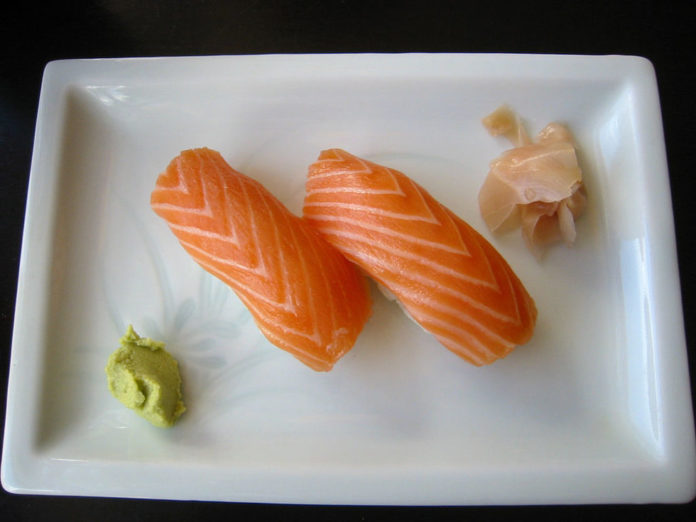
According to an article on WebMD, researchers have discovered that omega-3 polyunsaturated fatty acids help stabilize mood. A recent study in New Zealand found that fish consumption was linked to better mental health. Omega-3 fatty acids are known to make connections in the brain and strengthen neurotransmitter receptor sites. The result is an increase in serotonin production that stimulates mood. Choose fatty fish such as salmon, anchovies, sardines, and tuna.
2. Nuts
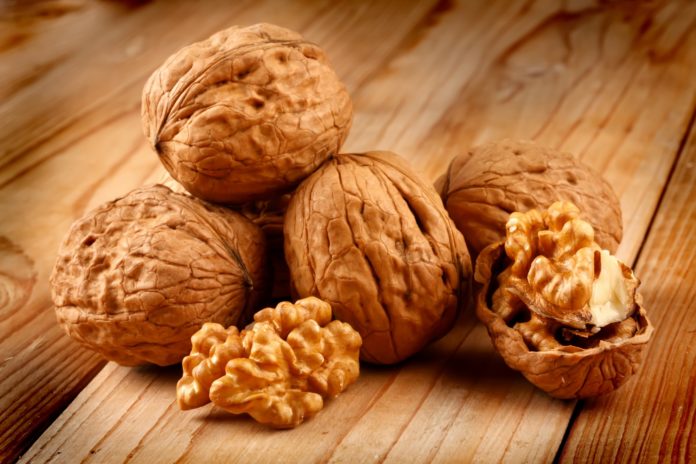
Nuts are particularly rich in nutrients and contain a variety of macronutrients that have long been known to be essential for mental health. According to Psychology Today, the top nutrients on the list are “vitamin B folate and the amino acid tyrosine, a precursor of the neurotransmitter dopamine. And then there’s magnesium, which contributes to many enzymes that fuel the brain’s intense metabolic activity.” Nuts are at the top of the list of foods that contain the most omega-3 per serving. In addition, nuts are an easy snack to carry and snack on the go, and their high protein content will help you maintain a balanced sugar level between meals.
3. Grass-fed beef

An article in Psychology Today extensively examined the advantages of grass-fed beef over other types of beef available on the market. “When cows eat green plants like grass, they also accumulate healthy fatty acids in their muscle tissue in the same way that fish do.” “The problem is that most of the meat and chicken we eat comes from animals that are fed on genetically modified grains, corn, and soybeans. When livestock are fed with these cereals, maize, and soybeans, they do not collect the same healthy unsaturated fats in their muscle tissue, but rather more saturated and unhealthy fats.” Don’t make the common mistake of associating the labels “antibiotic free” and “natural” with “grass-fed”. Although it is certainly better than the majority of beef sold that contains antibiotics (70% of all antibiotics used worldwide are used to accelerate livestock growth!), the fatty acid profile will simply not offer the same brain benefits as grass-fed beef.
4. Avocados
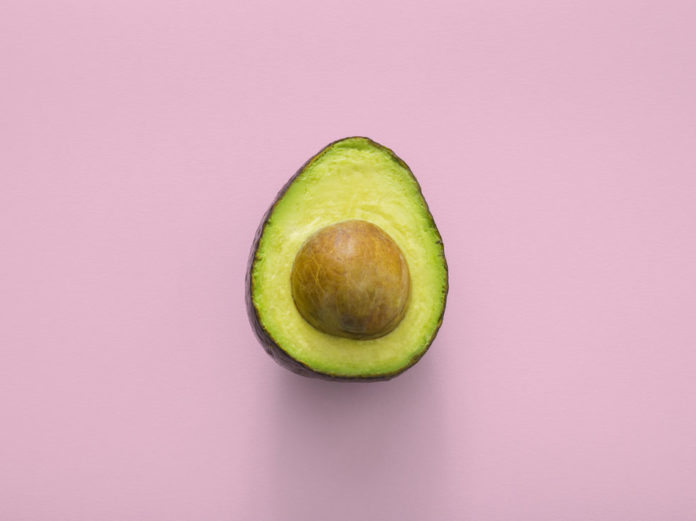
According to Medical News Today, the avocado is a source of nutritional energy that can help fight cancer, improve digestion, keep the heart healthy and fight depression. “Foods containing high levels of folate can help reduce the risk of depression because folate helps prevent the accumulation of homocysteine, a substance that can interfere with circulation and the supply of nutrients to the brain.” “Excess homocysteine can also interfere with the production of serotonin, dopamine, and norepinephrine, which regulate mood, sleep and appetite.”
5. Whole grains
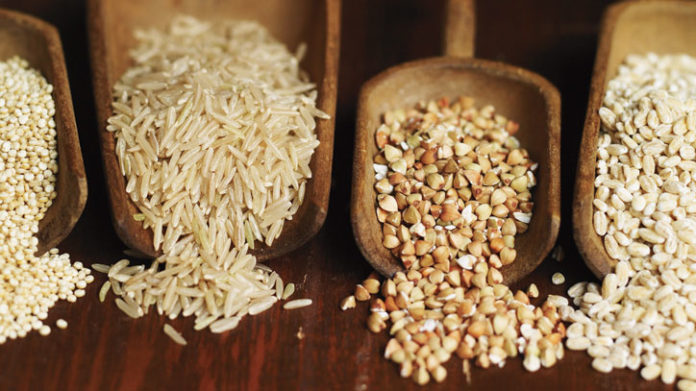
Carbohydrates are often linked to serotonin, a chemical substance in the brain. It is therefore not surprising that eating carbohydrates can make us happier in no time. However, whole grains (also called “complex carbohydrates”) are the important thing to remember if the goal is to fight depression. A 2015 study of 70,000 postmenopausal women found that increased consumption of whole grains was associated with lower rates of depression. On the other hand, consumption of refined cereals such as white flour was correlated with higher rates of depression.
6. Blueberries
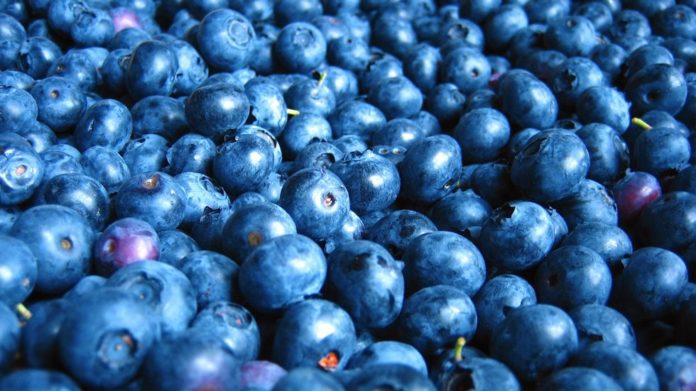
Science shows us that blueberries are one of the most powerful nutritional mood stimulants and can also help prevent dementia. In fact, in 2016, a study found that blueberry consumption helped reduce the genetic and biochemical factors that cause depression and suicidal tendencies related to post-traumatic stress disorder (PTSD). “We need to conduct a clinical trial in people to make sure it works, but our animal model studies show that blueberries can help alleviate some of the problems associated with PTSD,” said Dr. Joseph Francis, Professor Everett D. Besch of Veterinary Medicine at Louisiana State University School of Veterinary Medicine and lead author of this study.
7. Green vegetables
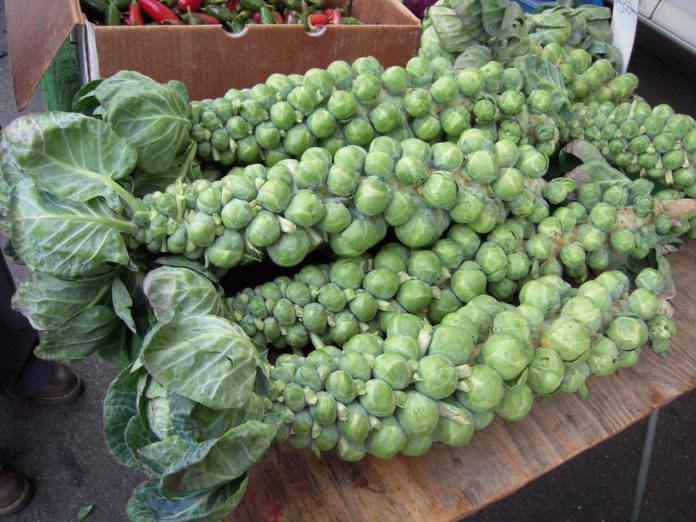
Many studies have shown us that eating vegetables helps to improve mood and stabilize blood sugar levels. Why? Why? Very Well Mind reports that leafy green vegetables are good sources of ALA (alpha-linolenic acid), one of the important omega-3 fatty acids. The best to try? Brussels sprouts, spinach, kale, and watercress. Other powerful nutrients such as fiber and folate also make dark leafy vegetables a wise choice when it comes to foods that help improve the mood.
8. Dark chocolate

An article in University Health News boasts that eating moderate portions of chocolate that contains at least 70% cocoa can have a huge impact on mood. “Chocolate has been shown to improve symptoms of depression and anxiety and to help reinforce feelings of calm and contentment,” UHN reported. The health benefits of cocoa go beyond mood. Cocoa contains two types of flavonoids – flavanols and flavonols – antioxidants of plant origin that help reduce inflammation associated with cardiovascular problems. So it is in your best interest to eat this delicious food!
Warning: Science has proven that foods can help improve mood, but if you think you may be suffering from clinical depression, consult your doctor.


![[Photos] Why WD-40 Is Magic In Your Garden?](https://lifetonik.com/wp-content/uploads/sites/7/2019/08/WD40-Prices-Highres_Page_8_Image_0008-218x150.jpg)





![[Photos] Take A Look Of The Obama’s New Home Before It’s Banned](https://lifetonik.com/wp-content/uploads/sites/7/2019/07/Obama1-218x150.jpg)

![[Slideshow] Celebrity Homes: 21 Of The Most Luxurious](https://lifetonik.com/wp-content/uploads/sites/7/2019/07/Taylor-Swift-218x150.jpg)
![[Slideshow] More Parents Are Now Gluing Pennies to the Bottom of their Kid’s Shoes](https://lifetonik.com/wp-content/uploads/sites/7/2019/07/Keep-Them-Entertained-218x150.jpeg)
![[Photos] 20 Fashion Mistakes That Too Many Women Make!](https://lifetonik.com/wp-content/uploads/sites/7/2019/07/5-style-mistakes-that-make-you-look-frumpy-featured-218x150.jpg)



















![[Gallery] 25 Discounts For Seniors To Which You Are Entitled Without Knowing It](https://lifetonik.com/wp-content/uploads/sites/7/2019/08/EAZxECUXUAAvNZR-218x150.jpg)
![[Slideshow] Here’s the salary of every governor in the United States](https://lifetonik.com/wp-content/uploads/sites/7/2019/08/Charlie-Baker-218x150.jpg)
![[Photos] No One Will Want To Buy This House After Seeing These Pictures](https://lifetonik.com/wp-content/uploads/sites/7/2019/08/terrible-real-estate-photos-2-5c35e727c9f95__700-218x150.jpg)



